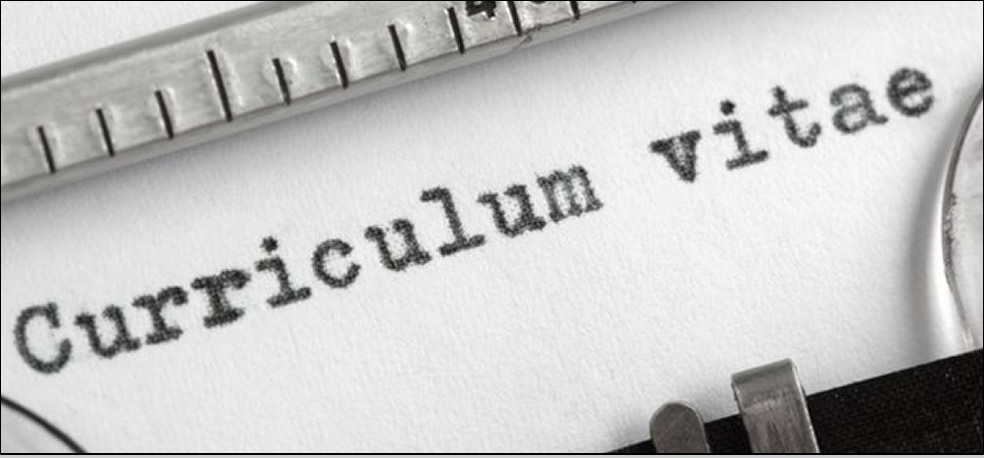

You are here: HOME > JOB SEEKERS > CV WRITING TIPS & ADVICE
CV WRITING TIPS & ADVICEWriting a well thought out and structured CV is one of the most important things you need to do when seeking a new job. Studies have shown that recruiters spend on average just 10 seconds reviewing a CV, so it’s imperative that your CV has the WOW Factor, otherwise you could be missing out on some great career enhancing jobs. Unfortunately writing a great CV takes a lot of time, effort and know how. Listed below are a number of points you should consider when compiling your CV.
CONTACT DETAILSThis may sound obvious, but we review thousands of CVs each week and you wouldn't believe how many CVs don’t have the basic contact details on them. Make sure you include your home address, phone numbers and most importantly an email address. Nowadays many recruiters are super busy and will want to contact you via email rather than by phone or post. Also make sure your email address is business like. If it’s not then look at setting a new one up just for job searching, as it doesn’t look good if a potential employer wants to email you by typing snugglebunnies3@email.com
CV LENGHT - HOW MANY PAGES SHOULD IT BEKeep your CV to a couple of pages, three at a push if it’s justified. Recruiters can receive hundreds of CVs for one particular job, and they’re not really going to want to know the intricate details of a job you did 15 years ago, as it’s your most recent experience that will interest them.
CV FORMAT & PRESENTATIONKeep it simple and tidy. Don’t be tempted to use really funky fonts and colours (unless you’re a Designer, where the conventional rules of writing a CV change slightly). Don’t make excessive use of tables and would definitely not recommend using text boxes. Try to use a font such as Arial or Verdana, keep the text colour to black, and space out the text well so that it doesn’t look all clumped up together.
CV CONTENT - WHAT INFORMATION TO INCLUDE & LEAVE OUTThis is where it can get tricky as you start to think about what to include, how much detail you should go into, how technical it should be, etc, etc. Generally a good place to start when you draft a CV is to write everything down. List all the duties you did at each job, your achievements, promotions, skills you developed, qualifications you got, technical skills used, size of teams you managed, size of budgets you controlled, responsibilities you had, you’re educational background, training courses attended. The list can go on and on. Once you have written everything down you can then go through all of these details to slim it down, summarising parts, and taking out anything you feel is not as important to include. This is probably the hardest part of putting together your CV. Once your CV is slimmed down, you then need to make it into an interview winning document. Effectively it’s a sales brochure all about you. The layout has to be easy to read and flowing, while at the same time not too technical that you alienate the reader. You also have to consider using industry key/buzz words so that you catch the reader’s eye and also show up on the recruiter’s database search when they’re looking to fill a new job they just got in.
PROFILE & ACHIEVEMENTSThis section of the CV should showcase your core skills, achievements and demonstrate why you’re an ideal fit for the job you’re applying for. It should catch the recruiters eye so they want to carry on reading the CV. Don’t make it too long, for instance half a page of A4 would be overkill. Also try to avoid using generic and really boring statements like “I’m a team player and can also work well on my own” or “I’m really loyal, a hard worker and can cope with pressure”.
EDUCATIONThere is no need to include every qualification you ever received going back to junior school. If you have a Degree only include the A-Levels that you received an A or B grade in, and if you have A Levels just include the relevant GCSEs/O Levels.
TRAININGIf you’ve been working for a number of years the chances are you’ve been on quite a few different training courses. You want to keep your CV relevant to the reader and the type of job you’re applying for, so just include the training courses that are relevant for the job.
INTERESTS & ACTIVITIESNot a lover of this section and personally would leave it out altogether. At the end of the day you’re applying for a job and not looking for someone to share your social life with. If you do want to include some of your pastimes in the CV keep it very short.
REFERENCESAt this stage of your job search you do not need to provide details of references, but it is always good to get a couple of pre-written ones prepared from previous employers which you can then forward on to the recruiter quickly if requested.
Good Luck writing your CV. We hope you found this information useful. We can’t stress enough how important your CV is when looking for a new job. |

| HOME | EMPLOYERS | JOB SEEKERS | IT CONTRACT RECRUITMENT |
| ABOUT | REGISTER A JOB VACANCY | CV WRITING TIPS & ADVICE | PERMANENT RECRUITMENT |
| CONTACT | CV SUBMIT | ||
| INTERVIEW TIPS |
Copyright © 2014 - 2018. Identi Recruitment Ltd. All rights reserved
Terms of Use & Privacy Policy